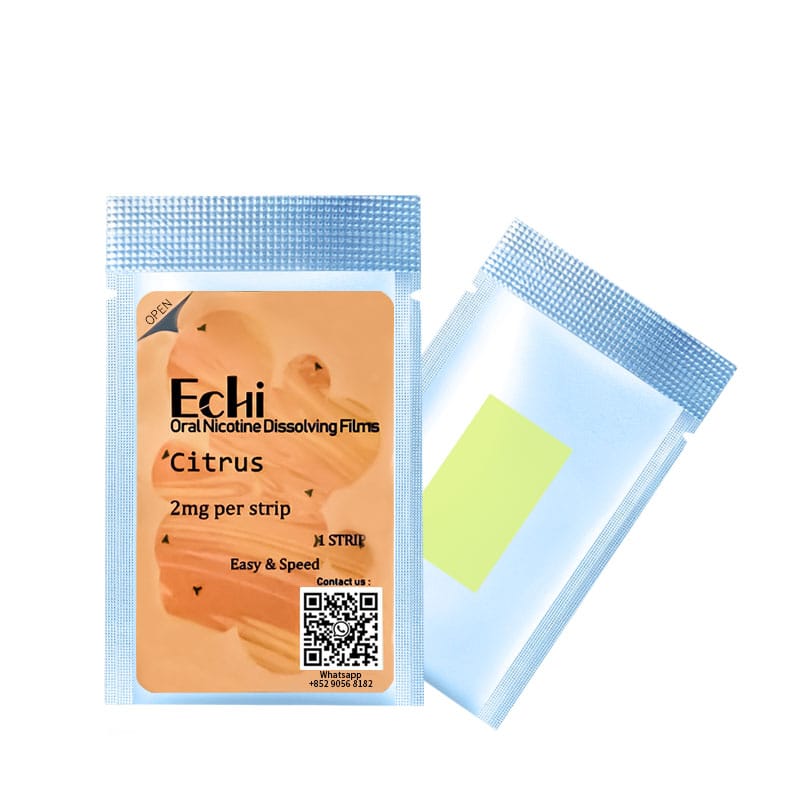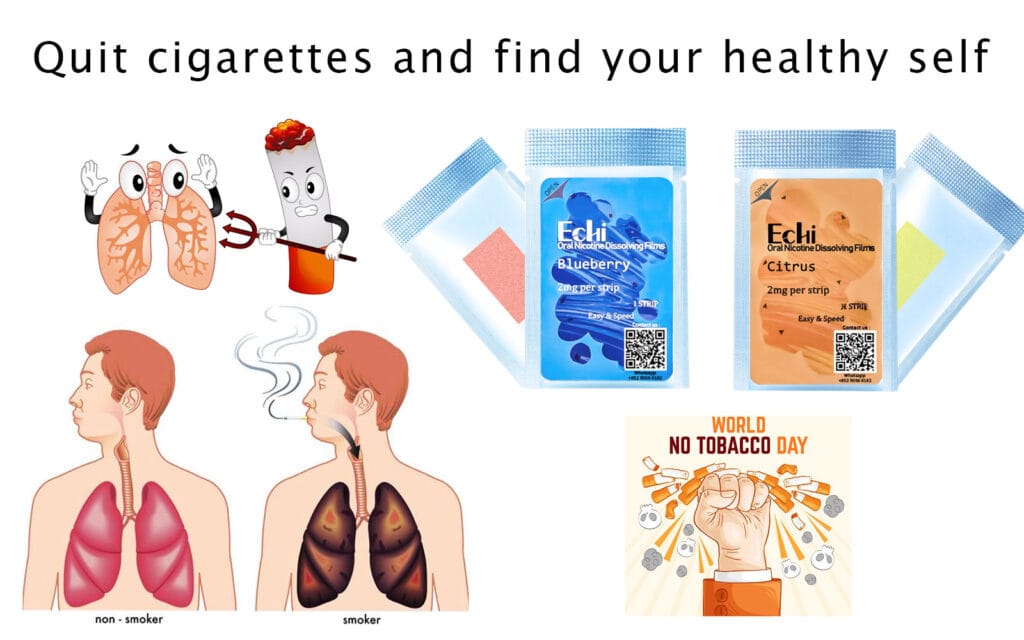Echi Nicotine Pouches, like other nicotine products, can cause anxiety, especially when you attempt to quit using them. Nicotine is a stimulant, which releases endorphins that put your brain into a heightened state of stimulation. However, once you stop, withdrawal can lead to reduced endorphins, creating a sense of anxiety and unease.
Nicotine overdose can also cause feelings of anxiety or queasiness. Below, we’ll dive into the science behind this and provide solutions to help avoid these issues.
Scientific Correlation Between Echi Nicotine Pouches and Anxiety
Echi nicotine pouches contain nicotine, which is a psychoactive stimulant that affects brain chemistry, mood, and functionality. Nicotine use releases endorphins such as serotonin, dopamine, and adrenaline, elevating your mental and physical state. Over time, continuous use forces your brain to adjust to this heightened state.
When you stop using Echi pouches, the lack of nicotine causes your brain to enter a “slump,” leading to anxiety, restlessness, and other withdrawal symptoms as endorphin levels drop.
The withdrawal effects can also impact your digestive system and other bodily functions, further contributing to discomfort during the quitting process.
Symptoms of Anxiety
Here are five common symptoms of anxiety that may arise due to nicotine withdrawal from Echi pouches:
- Irritability
- Fatigue or Tiredness
- Difficulty Concentrating
- Changes in Sleep Patterns (either excessive sleep or insomnia)
- Restlessness
These symptoms are more pronounced in long-term nicotine users or individuals with pre-existing mental health conditions. For people suffering from anxiety, depression, or other mental health disorders, nicotine withdrawal may amplify their symptoms.
Does Nicotine Cause Anxiety and Depression?
Yes, nicotine from pouches, snus, vaping, and cigarettes can contribute to anxiety and depression. This is largely due to the withdrawal process, which creates an “endorphin crash” that can significantly impact mood and mental health.
Here’s how nicotine affects the brain with different products:
Cigarettes and Anxiety
A typical cigarette delivers about 0.8 to 1.5 mg of nicotine, which provides a temporary high through the release of endorphins. Over time, this rewires your brain’s reward system, reinforcing addictive behaviors. Nicotine in cigarettes also creates a strong association between hand-to-mouth motions, which can cause restlessness when not smoking.
When you quit smoking, the combination of nicotine withdrawal and the loss of habitual hand movements can trigger anxiety. Smokers often use cigarettes to cope with social anxiety, depression, and other conditions, so quitting may exacerbate these issues.
Snus and Anxiety
Snus, a tobacco-based product, delivers nicotine in higher concentrations, making it highly addictive. Long-term users who quit snus may experience irritability, anger, and other mood disturbances. The withdrawal can also result in decreased focus, motivation, and altered sleep patterns.
Vapes and Anxiety
Vapes typically deliver less nicotine compared to cigarettes, but they reinforce similar hand-to-mouth habits. The wide range of flavors and social aspects of vaping makes it particularly appealing to younger users, increasing its addictive potential.
Vaping can maintain elevated endorphin levels for a longer period, making withdrawal symptoms even more noticeable once you stop. The sudden drop in nicotine levels can trigger anxiety and depression, similar to other nicotine products.
Tips to Reduce Nicotine-Related Anxiety
Anxiety is a common side effect of quitting Echi Nicotine Pouches or any other nicotine product. Below are some strategies to help manage and reduce anxiety during the withdrawal process:
1. Gradually Reduce Nicotine Intake
Going “cold turkey” after long-term nicotine use can lead to intense anxiety, depression, and withdrawal symptoms. This sudden drop in nicotine often causes users to relapse within the first six months. A more sustainable approach is to gradually reduce your nicotine intake, allowing your body to adjust to lower levels of stimulation over time.
Consider transitioning from stronger nicotine products (e.g., cigarettes or snus) to Echi Nicotine Pouches. Gradually reduce the strength of the pouches until you can stop using nicotine altogether.
2. Break the Habit Cycle
One of the hardest parts of quitting nicotine is breaking the habitual aspect of consumption. For example, smokers often struggle with the hand-to-mouth habit, which also applies to vapers and snus users. Identifying the triggers for these habits can help you avoid them.
One method is to make the habit harder to follow. For example, if you typically use Echi Nicotine Pouches after meals, store them in a hard-to-reach place. Adding extra steps before you can access the product may reduce your reliance on the habit over time.
3. Detox and Flush Your System
Flushing your system through detoxification can help alleviate some anxiety related to nicotine withdrawal. Nicotine typically stays in your body for 3 to 10 days, but its by-products can linger for much longer. A healthy diet and hydration can help clear these substances from your system.
Fresh juices, like pomegranate or citrus-based drinks, can support your body during detox by providing essential vitamins and nutrients. Staying well-hydrated also helps flush out toxins faster.
4. Exercise Regularly
Exercise is an effective way to manage anxiety, as it naturally boosts serotonin, dopamine, and adrenaline levels. Physical activity not only stabilizes your mood but also helps distract you from nicotine cravings and the symptoms of withdrawal.
Incorporating daily exercise into your routine can improve your overall mental and physical well-being while reducing anxiety and depression during the quitting process.
Conclusion
Echi Nicotine Pouches, like other nicotine products, are stimulants that affect mood by altering endorphin levels in the brain. When you stop using nicotine, your body experiences a decrease in these “feel-good” chemicals, resulting in an endorphin slump that can cause anxiety and depression.
By reducing nicotine intake gradually, breaking consumption habits, and supporting your body with exercise and detoxification, you can minimize the withdrawal symptoms and manage anxiety more effectively. Planning a consistent reduction in nicotine consumption will help ease the transition away from dependence on nicotine pouches and lead to better long-term mental health.







